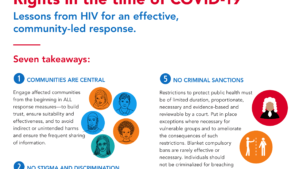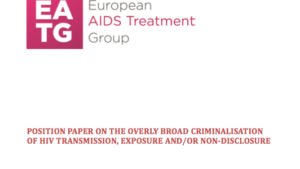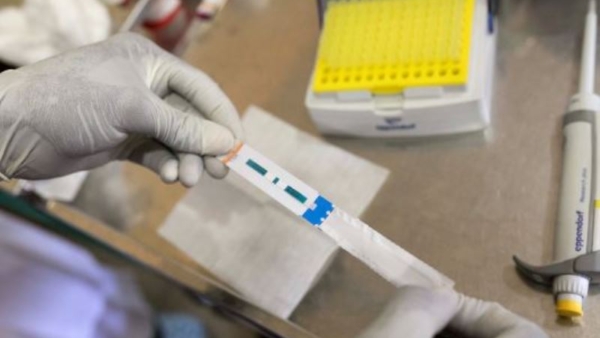Overview
Poland has an HIV-specific law within a provision which criminalises ‘exposure’ to both HIV and other sexually transmitted diseases.
Article 161 of the Criminal Code makes it an offence for anyone knowingly living with HIV to ‘expose’ another to a risk of transmission, while also criminalising ‘exposure’ to other venereal or contagious diseases. Under the guise of COVID-19 prevention, on 31 March 2020, the Polish government amended this provision to increase the penalty for HIV ‘exposure’ from a maximum of three years’ to up to eight years’ imprisonment, while the penalty for exposure to other STIs and/or infectious diseases was also increased from a fine or one year’s imprisonment to a maximum of six years’, with a new provision providing up to ten years in prison if more than two people are exposed.
Furthermore, actual transmission may be prosecuted under general harm provisions. Article 156 makes it an offence to cause ‘grievous bodily injury’, defined to included the transmission of severe or incurable diseases, with a penalty of up to 10 years’ imprisonment if intentional, up to three years’ if unintentional, and up to 12 years’ if the transmission results in death.
In its 2023 report, HIV Criminalisation in the EU, AIDS Action Europe documents criminal proceedings under the ‘exposure’ offence in selected years from 1999-2020, finding between five and 20 detected crimes each year. However, this data does not disaggregate between HIV ‘exposure’ and ‘exposure’ to other STIs, so it is impossible to know how many of these cases relate to HIV ‘exposure’. Importantly, this data also does not include any prosecutions for alleged transmission under general harm provisions.
We are only aware of one confirmed case of enforcement for HIV ‘exposure’ under Article 161. In this high-profile case, a Cameroonian refugee who was a poet and human rights activist was accused of transmitting HIV to ‘up to 40 women’ by having condomless sex with them without disclosing his HIV status. He died while his trial was underway, in October 2008.
In December 2024, it was reported by the Polish Press Agency that the Ministry of Health was pushing for an amendment to Article 161 to remove the HIV-specific element of the provision, leaving only a general disease offence in place. The report stated that the proposal had been passed to the Ministry of Justice for consideration, however at present no commitment had been made. The proposal would also reduce the maximum sentence to three years’ imprisonment
Laws
Criminal Code
Article 161. Exposure to infection
1. Who, knowing that he is infected with HIV, directly exposes another person to such infection, shall be subject to the penalty of deprivation of liberty for a term of between 6 months and 8 years.
2. Who, knowing that he is affected by a venereal or contagious disease, is a serious incurable disease or real life-threatening, exposes another person directly to infection with such disease, shall be punishable by imprisonment from 3 months to 5 years.
3. If the perpetrator of the act specified in § 2 exposes many people to infection, shall be punishable by imprisonment from 1 to 10 years.
4. The prosecution of the offense specified in § 1 and 2 at the request of the victim.
Criminal Code
Article 156. Grievous bodily harm
1. Whoever causes grievous bodily harm in a form which:
(1) deprives a human being of sight, hearing, speech or the ability to procreate, or
(2) inflicts on another a serious crippling injury, an incurable or prolonged illness, an illness actually dangerous to life, a permanent mental illness, a permanent total or substantial incapacity to work in an occupation, or a permanent serious bodily disfigurement or deformation
shall be subject to the penalty of the deprivation of liberty for a term of between 1 and 10 years.
2. If the perpetrator acts unintentionally he shall be subject to the penalty of deprivation of liberty for up to 3 years.
3. If the consequence of an act specified in § 1 is the death of a human being, the perpetrator shall be subject to the penalty of the deprivation of liberty for a term of between 2 and 12 years.
Acknowledgements
Our thanks to Magdalena Ankiersztejn-Bartczak at the Foundation for Social Education for her research assistance in confirming the current relevant legislation.
HIV Justice Network's Positive Destinations
Visit the Poland page on Positive Destinations for information on regulations that restrict entry, stay, and residency based on HIV-positive status, as well as access to HIV treatment for non-nationals.



